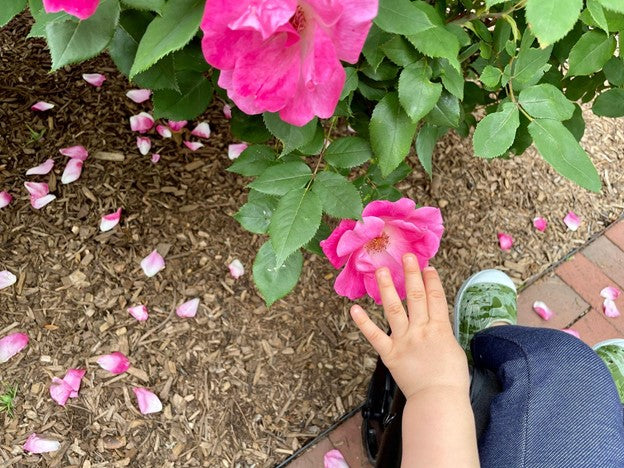
Every parent has seen it—that unmistakable glimmer in a child’s eye when they discover something new. It might be a sudden fascination with dinosaurs, a relentless series of “why” questions at the dinner table, or a spontaneous desire to learn how aeroplanes stay in the sky. That innate hunger to understand the world doesn't need a classroom to flourish. The role of a parent isn’t just to encourage good grades or finish homework on time. It’s to fiercely guard the love of learning from being dulled by routine or expectation.
Turning the Outdoors Into a Living Classroom
There’s something about stepping outside that flips a switch in a child’s brain—suddenly, everything is fair game for exploration. Turning your backyard or neighbourhood park into a hands-on learning space is as simple as packing the right tools and letting curiosity lead. Thoughtfully designed toys from Upper Notch Club can make these adventures even more engaging, like a children’s gardening set that turns dirt into discovery, a water mill toy that invites conversations about movement and flow, or a kit stocked with binoculars, a magnifying glass, and a compass to help young explorers navigate the natural world. When learning feels like play and nature becomes the classroom, lessons tend to stick in a way textbooks can’t quite match.
Books, Posters, and the Art of Reflection
One simple but powerful way to deepen a child's connection with a story is by turning that book into something visual. Creating a poster together encourages them to reflect on key moments, characters, or themes while expressing themselves through art and layout. You can use an easy-to-use app to design and print posters online, which enables users to design, customize, and print high-quality posters using an array of templates and intuitive editing tools. When children turn stories into visuals, they aren't just remembering—they're interpreting, connecting, and making the book their own.
Let Boredom Do Its Job
Parents often feel a rush to fix boredom, to suggest activities, offer screens, or fill the quiet with structure. But boredom has a job, and it’s worth letting it work. When children sit with that uncomfortable stillness long enough, their imagination starts to stretch out, looking for something to grasp. That’s where invention lives. Give children the time and space to be bored without guilt, and soon they’ll start building worlds, not just filling hours.
Separate Praise from Outcome
Too much emphasis on praise tied to performance—grades, awards, perfect projects—can quietly teach kids that learning only matters if there’s a gold star at the end. Shift the focus toward the process: the questions they asked, the risks they took, the effort they put in when no one was looking. When children are recognized for how they think rather than just what they produce, they begin to associate learning with identity, not with reward. That shift is subtle but transformative.
Keep Tools Within Reach, But Don’t Fill Every Shelf
Learning flourishes in environments that invite exploration, not overwhelm. That means having books, puzzles, notebooks, musical instruments, or building blocks around—but not stacked to the ceiling. A few well-loved items often ignite more creativity than a room packed with distractions. Leave space for children to imagine what's missing, rather than giving them everything pre-built and polished. When a child has to reach for something and find their own way to use it, learning becomes a personal act, not a passive one.
Don’t Outgrow Curiosity Yourself
The most powerful way to nurture a child’s love of learning is to never stop modelling it. When adults show they’re still learning—still surprised, still open, still wrestling with big questions—it sends the strongest signal possible: this never ends, and that’s the best part. Children who see their parents reading for joy, asking hard questions, or admitting they don’t know something are more likely to adopt the same stance. Learning is less about age and more about attitude. When curiosity becomes a shared family value, it becomes nearly impossible to extinguish.
The love of learning isn’t something planted once and left to grow on its own. It needs air, light, and tending. Parents can’t control every influence in a child’s world, but they can create a home where curiosity is never scolded or sidelined. In a time when attention is currency and outcomes are constantly measured, choosing to prioritise wonder, exploration, and the joy of not knowing is a radical act.
Discover unique gifts and essentials for every occasion at Upper Notch Club and enjoy exclusive access to sales and new product launches by joining their VIP club today!
